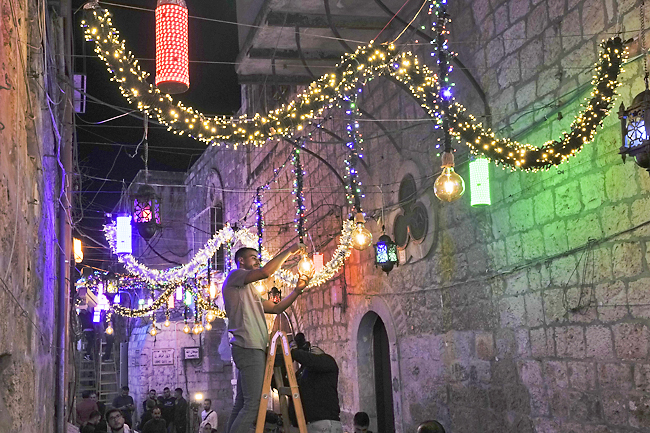CAIRO (AP) – Ramadhan began at sunrise yesterday in much of the Middle East, where Russia’s invasion of Ukraine has sent energy and food prices soaring.
Muslims follow a lunar calendar and a moon-sighting methodology can lead to different countries declaring the start of Ramadhan a day or two apart.
Muslim-majority nations including Saudi Arabia, Egypt, Syria, Sudan and the United Arab Emirates (UAE) had declared the month began yesterday.
A Saudi statement on Friday was broadcast on the kingdom’s state-run Saudi TV and Sheikh Mohammed bin Zayed Al Nahyan, the Crown Prince of Abu Dhabi and de facto leader of the UAE, congratulated Muslims on Ramadhan’s arrival.
Many had hoped for a more cheerful Ramadhan after the coronavirus pandemic cut off the world’s two billion Muslims from practices the past two years.

With Russia’s invasion of Ukraine, however, millions of people in the Middle East are now wondering where their next meals will come from. The skyrocketing prices are affecting people whose lives were already upended by conflict, displacement and poverty from Lebanon, Iraq and Syria to Sudan and Yemen.
Ukraine and Russia account for a third of global wheat and barley exports, which Middle East countries rely on to feed millions of people who subsist on subsidised bread and bargain noodles.
They are also top exporters of other grains and sunflower seed oil used for cooking. Egypt, the world’s largest wheat importer, has received most of its wheat from Russia and Ukraine in recent years.
Shoppers in the capital Cairo turned out earlier this week to stock up on groceries and festive decorations, but many had to buy less than last year because of the soaring prices.
Ramadhan tradition calls for colourful lanterns and lights strung throughout Cairo’s narrow alleys and mosques. Some people with the means to do so set up tables on the streets to dish up free post-fast Iftar meals for the poor.
“This could help in this situation,” said the muezzin of a mosque in Giza Rabei Hassan as he bought vegetables and other food from a nearby market. “People are tired of the prices.”
Worshippers attended mosque for hours of Tarawih. On Friday evening, thousands of people packed the al-Azhar Mosque after attendance was banned for the past two years to stem the pandemic. “They were difficult (times)… Ramadhan without Tarawih at the mosque is not the same,” said a 64-year-old retired teacher Saeed Abdel-Rahman as he entered al-Azhar for prayers.
In Istanbul, Muslims held the first Ramadhan prayers in 88 years in Hagia Sophia, nearly two years after the iconic former cathedral was converted into a mosque.
Worshippers filled the 6th-Century building and the square outside on Friday night for Tarawih prayers led by the government head of religious affairs Ali Erbas.
Although converted for Islamic use and renamed the Grand Hagia Sophia Mosque in July 2020, COVID-19 restrictions had limited worship at the site.
“After 88 years of separation, the Hagia Sophia Mosque has regained the Tarawih prayer,” Erbas said, according to the state-run Anadolu Agency.






